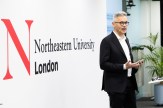Albright, Clintons, Kennedy address CGI U students on refugees, climate, cooperation
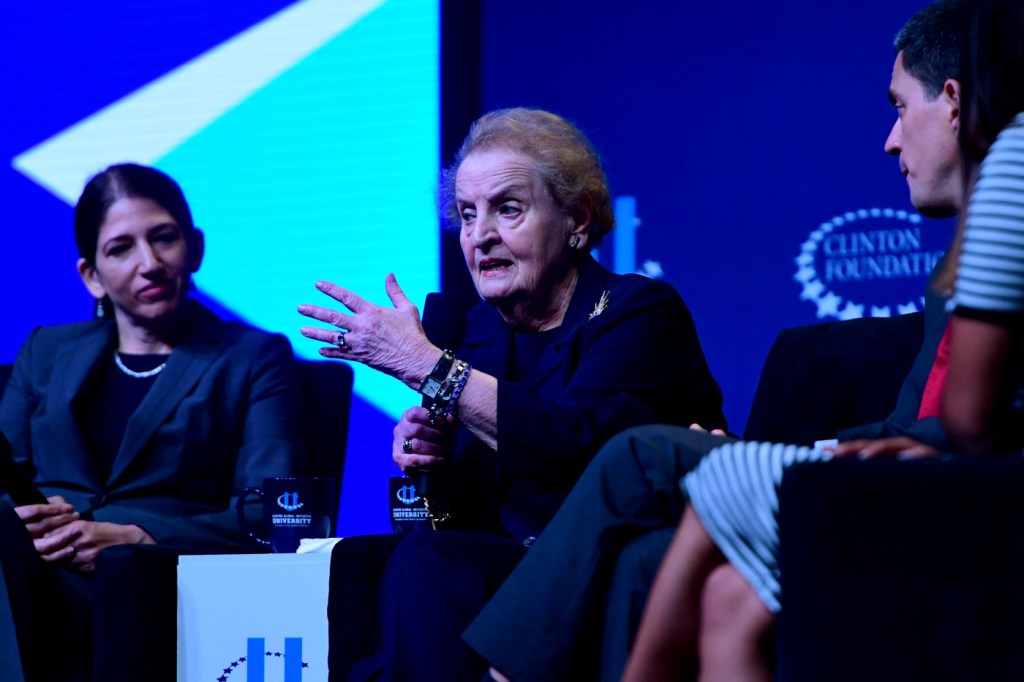
On Saturday, CGI U students listened to engaging discussions featuring scholars, dignitaries, and experts in fields of study that are crucial to the state of the world. Leaders such as former U.S. President Bill Clinton, former U.S. Secretary of State Madeleine K. Albright, Clinton Foundation Vice Chair Chelsea Clinton, U.S. Rep. Joseph Kennedy III, and Partners in Health co-founder Paul Farmer urged attendees to take action in solving some of most pressing challenges.
Topics during the day’s three plenaries included creating opportunities for migrants and refugees, designing a sustainable future, and achieving compromise in a deeply polarized country.
On the move: Creating opportunity for migrants and refugees
Saturday began with a discussion on the global refugee crisis, something David Miliband, founder and CEO of the International Rescue Committee and a former Secretary of State for Foreign and Commonwealth Affairs in the U.K., described as “a trend, not a blip.”
Northeastern law professor Rachel Rosenbloom, a scholar of migrant and refugee issues, moderated the panel, which included Milliband, Albright, and Sarahi Espinoza Salamanca, founder and CEO of Dreamers Roadmap and an immigrant herself.
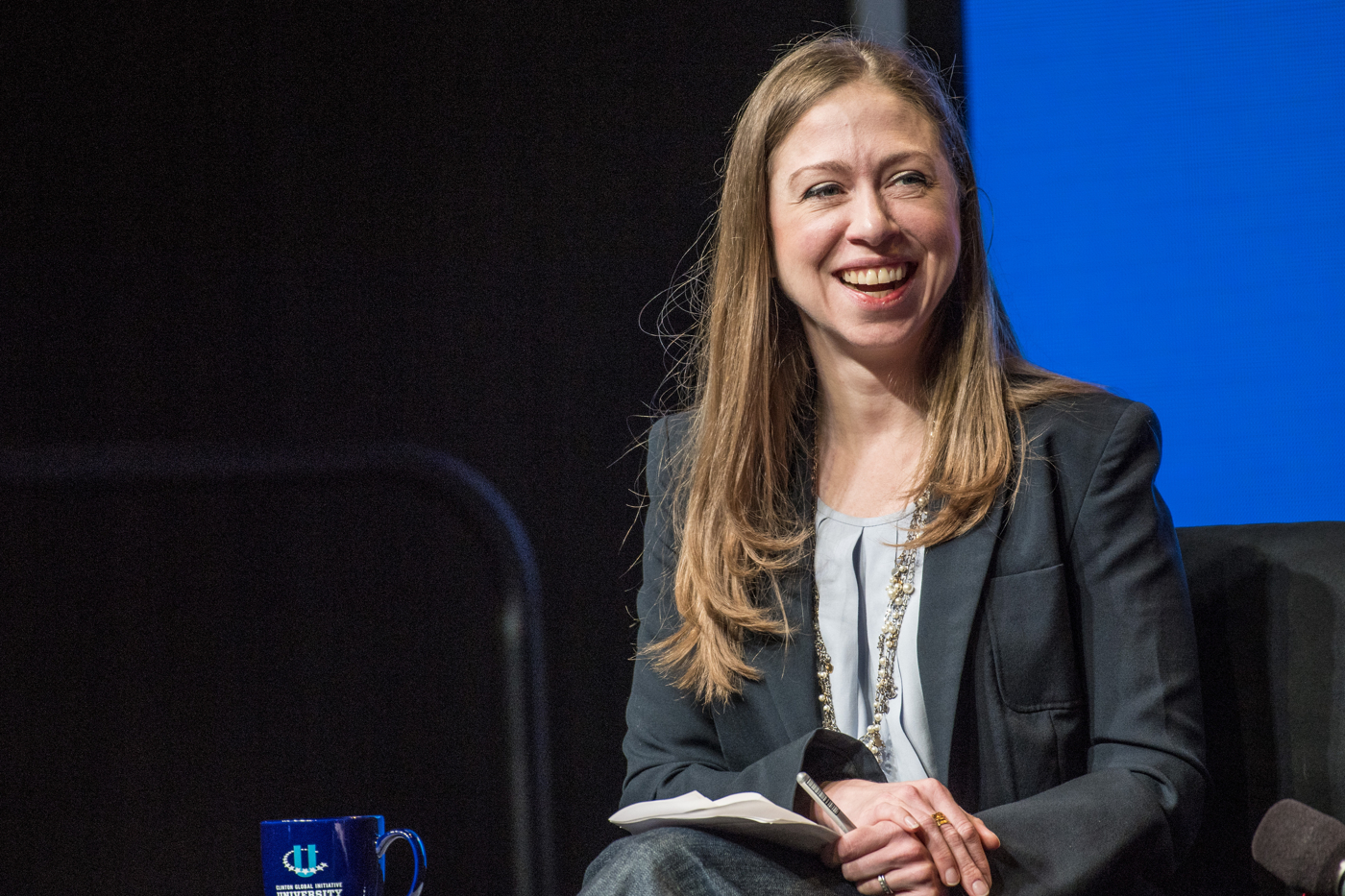
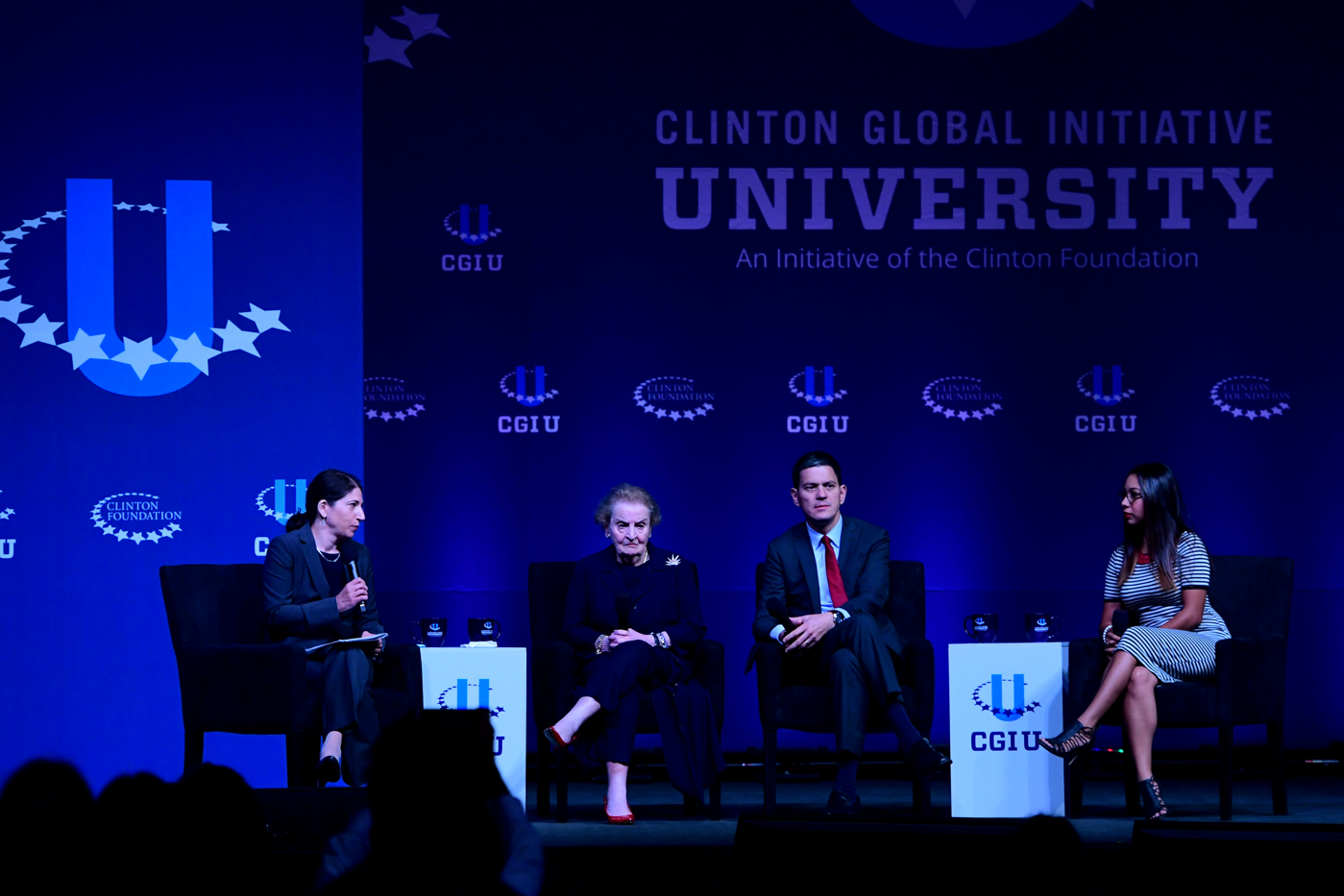
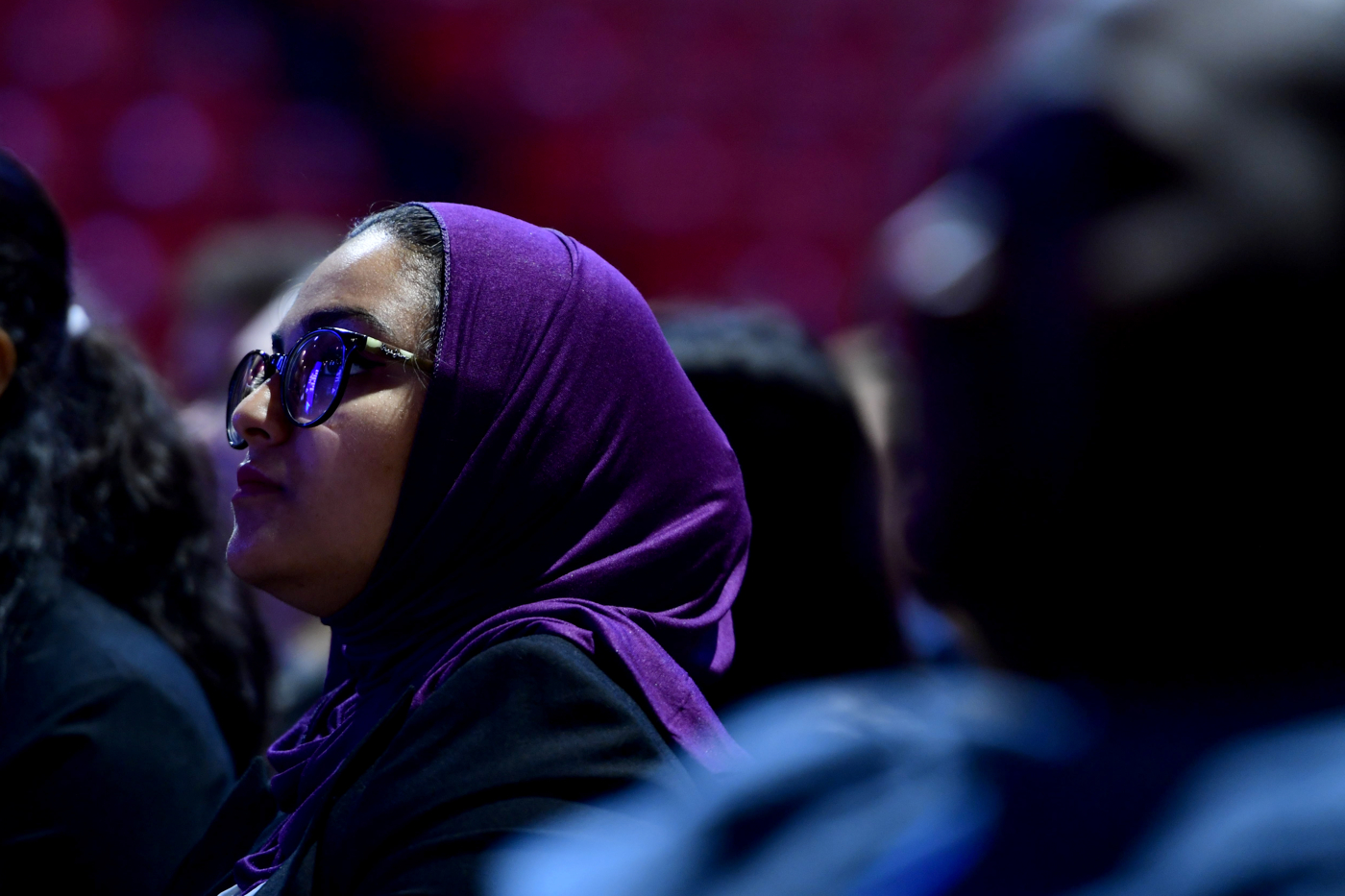
Rosenbloom offered some scope of the issue, explaining that more than 250 million people live outside their countries of birth. While the majority of that population moved by choice, a significant number are fleeing war, persecution, and the often-devastating effect of climate change on their homes.
The scholars encouraged students to focus on the people behind these waves of migration as a means of effecting positive change.
“We have to recognize people behind the immigration crisis,” Albright said, recalling a moment when she was a refugee herself. Following one woman’s citizenship ceremony, the woman remarked that the secretary of state, then Albright, had signed her citizenship form.
“Can you imagine that a refugee is the secretary of state?” Albright responded. “That’s what this country is all about.”
Salamanca created a platform through which young people who were brought to the U.S. by their parents can find and apply for financial aid for college. Dubbed “Dreamers,” the platform came from her own experience trying to apply for college as a Dream Act student.
“In my experience, putting a face to these stories changes people’s minds and people’s hearts,” she said.
Of the global migration of refugees, Milibrand added: It’s one thing to say, ‘We’ve all got to live in this house together.’ It’s a far better thing to say, ‘Let’s all build this house together.’”
Making it: Designing a healthy and sustainable future
As the effects of climate change become increasingly clear, the imperative to design a more sustainable future also becomes stronger.
In search of the best way forward, Chelsea Clinton moderated a panel discussion on the topic Saturday afternoon.
Panelists included Farmer; Ayah Bdeir, founder and CEO of the innovation incubator littleBits; Lisa Jackson, vice president of environment, policy, and social initiatives at Apple; Samantha Marquez, innovator and activist from Yale University; and M. Sanjayan, CEO of Conservation International.
The importance of social justice in environmentalism emerged from the discussion as a unifying thread.
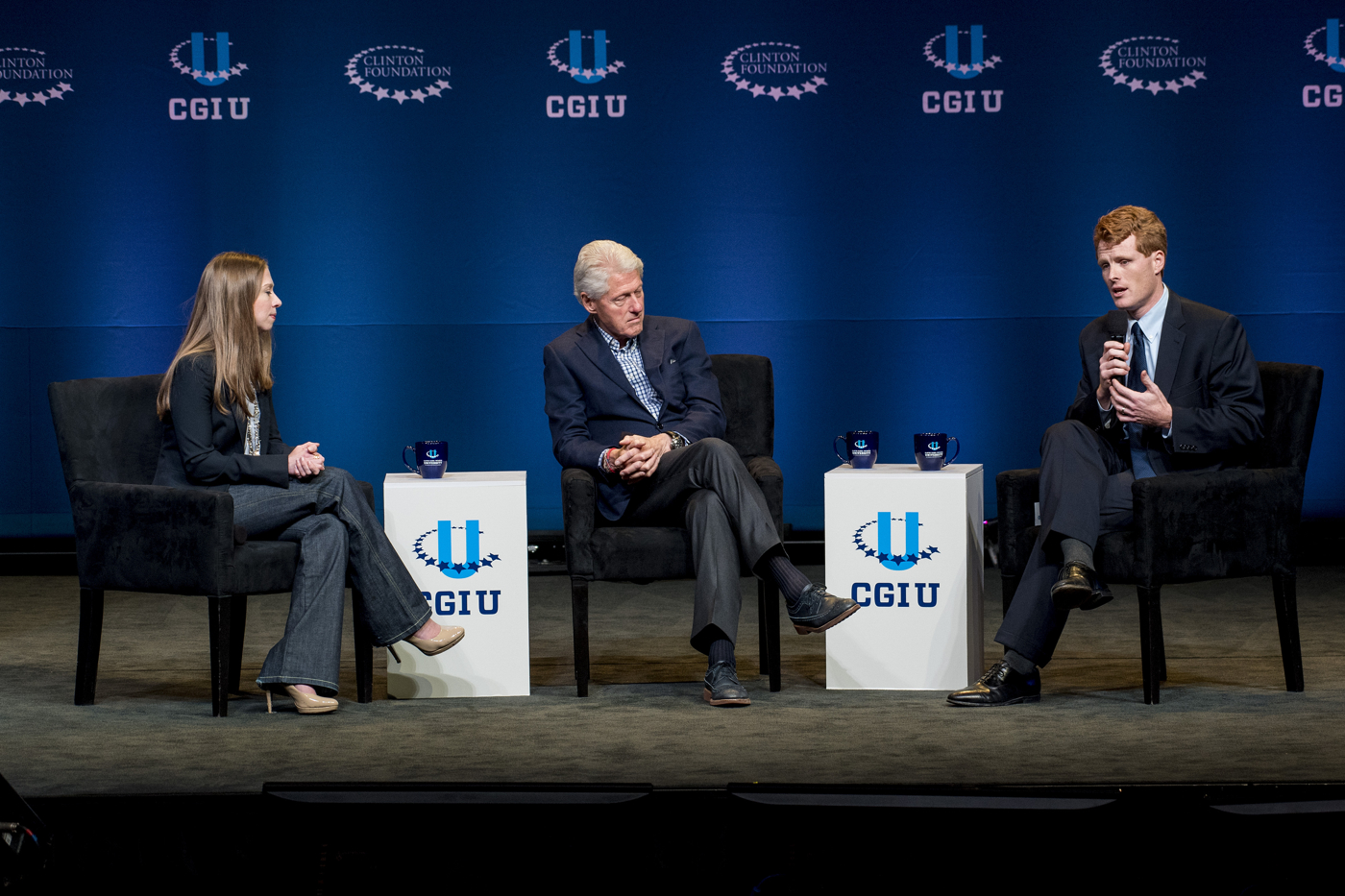
Photo by Billie Weiss/for Northeastern University
“We need social justice in the delivery of material services in health and education,” Farmer said, noting that places like West Africa, for example, are “clinical deserts.”
Jackson added that big companies have the “responsibility” to ensure they’re acting responsibly within the environment. “At Apple, we talk a lot about making the best products in the world,” she said. “The other side of that is making the best products for the world. That’s central at Apple, and we have a responsibility to do so.”
Clinton asked Sanjayan for advice moving forward. His answer echoed that of Albright, Miliband, and Salamanca, who spoke earlier in the day. “I’m not a big believer in using science to deliver a message,” he said. “I think messages that resonate in the heart and then engage the mind are more important.”
Finding compromise
In the closing plenary session, former President Bill Clinton and Chelsea Clinton joined Kennedy for a conversation that centered on achieving the seemingly impossible—compromise in a country that feels deeply divided.
One of the focus areas of CGI U 2017 was climate change. In his closing remarks, President Clinton said the country likely can’t count on the federal government to pass any sweeping climate change legislation anytime soon. So, he asked Kennedy, how can motivated young people make a difference?
“It’s not just a question of, ‘what can you do?’” Kennedy said. “Folks, we’re depending on you.”
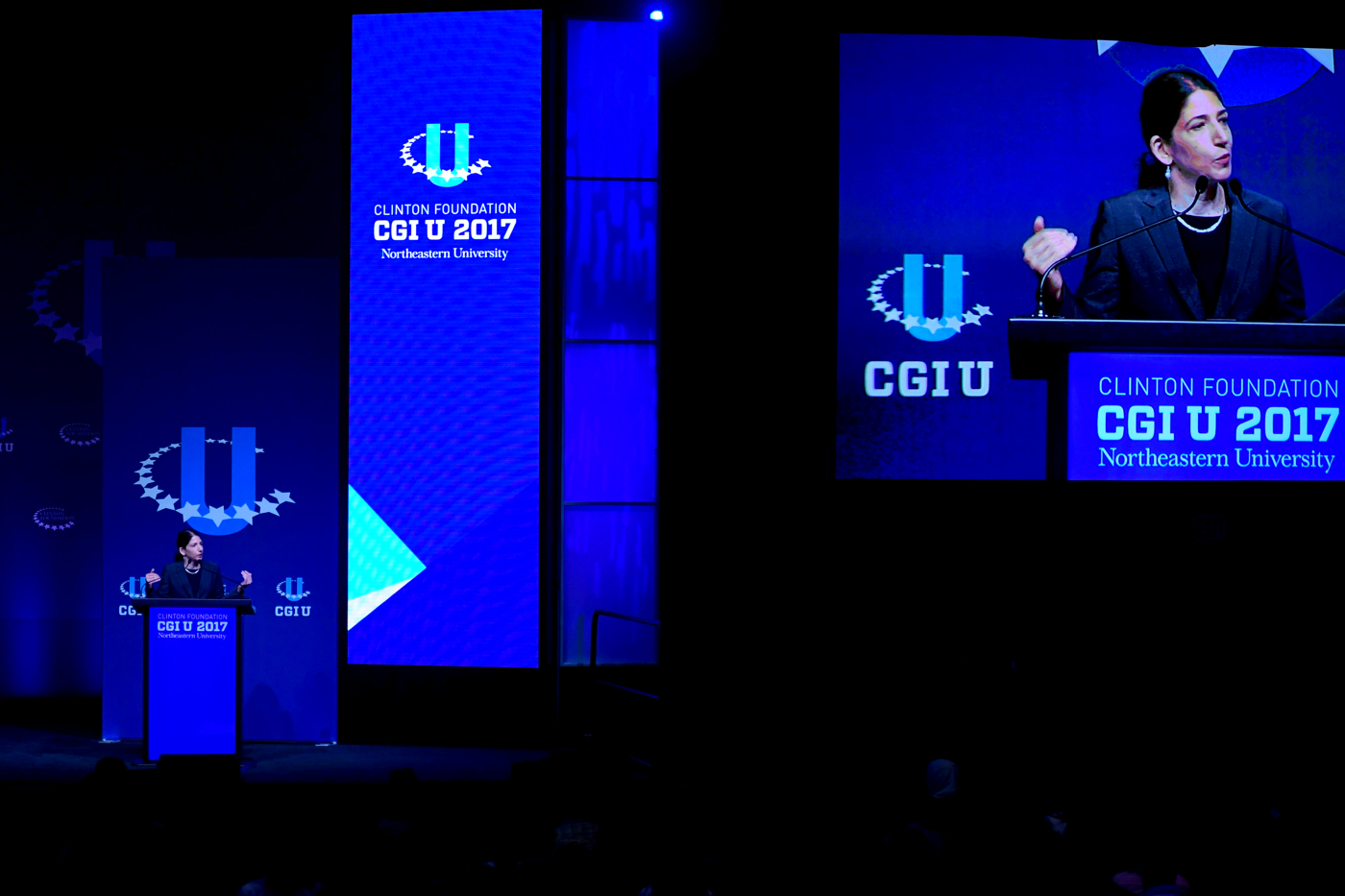
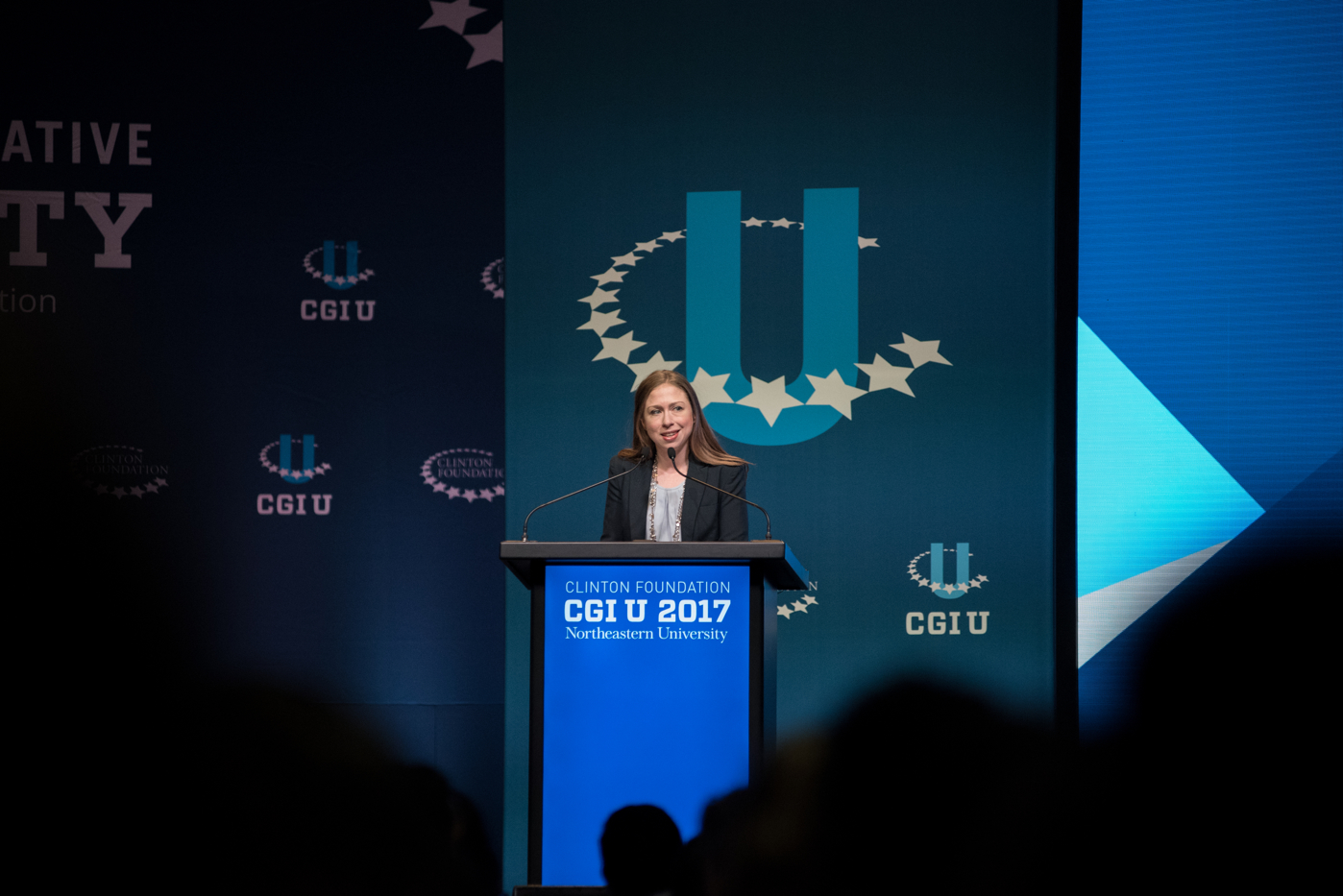
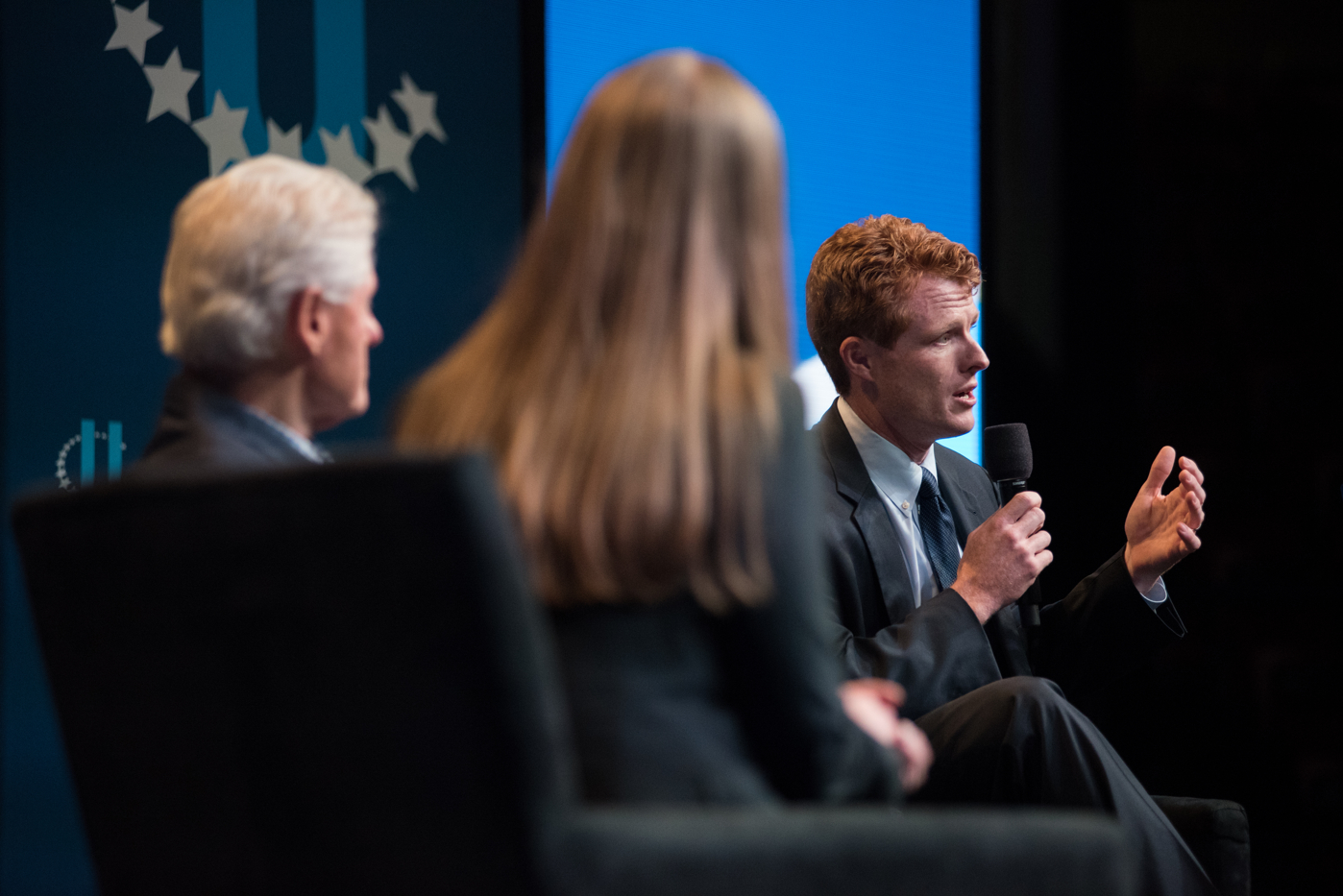
Kennedy, who said the current government doesn’t have the political will to act on climate change, praised those who have already taken bold approaches to tackling the problem. He encouraged students passionate about protecting the planet to continue building apps, launching action organizations, and joining lawsuits that are being filed by young Americans concerned about an uncertain climate future.
“In the absence of the action many of us desire, you are our best hope,” Kennedy said.
He also offered advice on how to be politically effective. One way is to pressure lawmakers on the local and municipal levels to adopt environmentally responsible policies. “We can force our country to take action piece by piece, where our federal government fails to do so,” Kennedy said.
In response to an audience question about how to reach agreement with individuals whose views you staunchly oppose, Chelsea Clinton said there are certain areas where compromise may not be possible. And that’s a good thing.
“I don’t think there’s a middle ground to bigotry,” Clinton said, adding that the same goes for racism, sexism, and transphobia. “There is no middle ground if you’re denying someone’s equal humanity.”
Aside from these non-negotiable values, everyone on the panel agreed that compromise will be essential in uniting the country and making progress on our most pressing issues. Indeed, cooperation among diverse voices and perspectives is what the country is founded on, President Clinton said.
“Read the Constitution. It might as well be subtitled, ‘Let’s make a deal,’” Clinton said. He asked the audience to imagine a world where no one wins unless everyone is empowered to win. And he offered a simple but poignant piece of advice.
“People are more inclined to listen to you if you’ve listened to them,” Clinton said.


